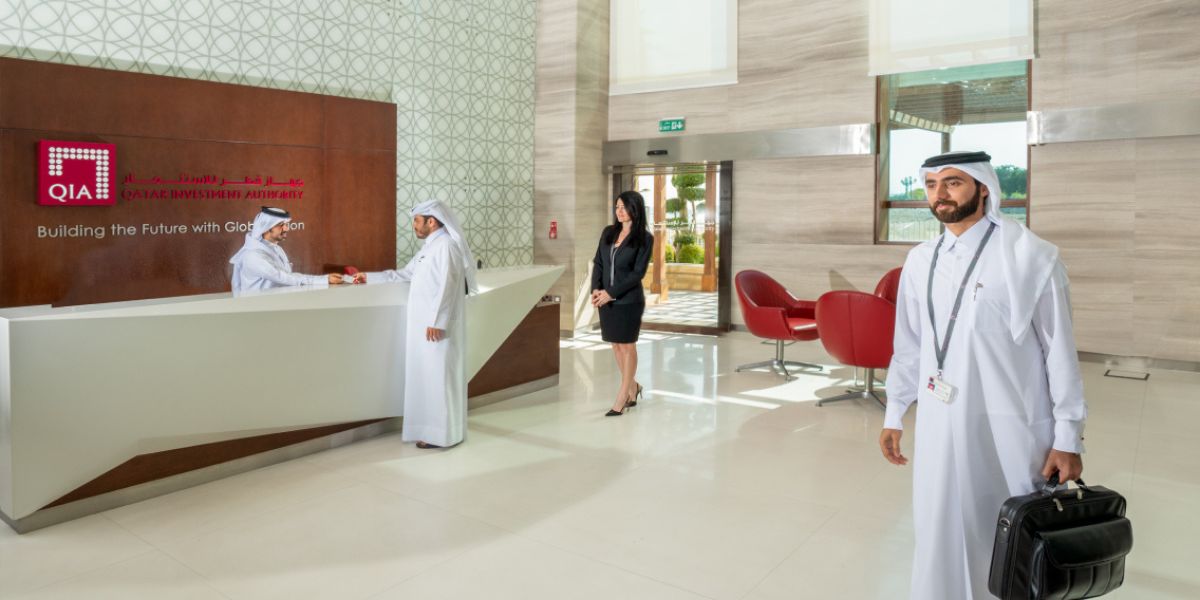
Posted On : Nov 7 2024
Qatar`s Strategic Investments: Mapping the Global Landscape
In recent years, Qatar has emerged as a significant player in the global investment arena, leveraging its substantial financial resources to diversify its economy and secure strategic assets worldwide. With a proactive approach to investment, the tiny Gulf nation has strategically deployed its wealth to generate long-term returns, foster international partnerships, and assert its influence on the global stage. From finance and real estate to technology and energy, Qatar's investment footprint spans diverse sectors, leaving an indelible mark on the global economy.

Strategic Vision and Investment Strategy
Qatar's investment strategy is underpinned by a long-term vision aimed at securing sustainable growth and reducing dependence on its hydrocarbon reserves. The Qatar Investment Authority (QIA), the sovereign wealth fund responsible for managing the country's excess oil and gas revenues, plays a pivotal role in executing this vision. Established in 2005, the QIA has rapidly evolved into one of the world's largest and most influential sovereign wealth funds, with assets exceeding $300 billion.
Diversification is a cornerstone of Qatar's investment philosophy, with a focus on both traditional and alternative asset classes. While the energy sector remains a significant component of its portfolio, Qatar has systematically diversified into real estate, infrastructure, technology, healthcare, and other high-growth industries. This approach not only mitigates risks associated with oil price volatility but also positions Qatar to capitalize on emerging opportunities in global markets.
Global Investments: A Snapshot
Qatar's investments span the globe, with a strategic emphasis on key regions and sectors aligned with its economic priorities. The United States and Europe have historically been primary destinations for Qatari capital, with high-profile acquisitions including stakes in prominent companies such as Volkswagen, Barclays, and Tiffany & Co. In addition to traditional investments, Qatar has made substantial commitments to infrastructure projects, particularly in Europe, where it has financed transportation hubs, commercial developments, and renewable energy initiatives.
In Asia, Qatar has sought to capitalize on the region's rapid economic growth and burgeoning consumer markets. Investments in technology companies, e-commerce platforms, and fintech startups reflect Qatar's strategic interest in leveraging innovation and digitalization to drive future returns. Furthermore, partnerships with Asian sovereign wealth funds and conglomerates have facilitated access to lucrative investment opportunities across diverse sectors.
The Middle East and Africa present compelling opportunities for Qatar, given their proximity and economic potential. Investments in real estate, hospitality, and infrastructure projects have positioned Qatar as a key player in the region's development landscape. Moreover, strategic alliances with governments and private enterprises have facilitated collaboration on large-scale projects, ranging from urban regeneration initiatives to energy infrastructure investments.
Impact and Challenges
Qatar's global investments have had a profound impact on the countries and industries in which it operates. In addition to generating financial returns, Qatari capital infusion has stimulated economic growth, created jobs, and catalyzed development in host countries. Furthermore, Qatar's reputation as a reliable investor with a long-term outlook has helped foster trust and stability in global markets, particularly during times of economic uncertainty.
However, Qatar's investment strategy is not without its challenges and criticisms. Concerns over transparency, governance, and geopolitical considerations have occasionally cast a shadow over its investment activities. Moreover, fluctuations in global markets, regulatory changes, and geopolitical tensions pose risks to Qatar's investment portfolio, necessitating a prudent and adaptive approach to risk management.
Looking Ahead
As Qatar continues to navigate a rapidly evolving global landscape, its investment strategy will likely evolve to reflect emerging trends and opportunities. Sustainable investing, ESG considerations, and technological disruption are expected to shape Qatar's investment priorities in the coming years. Moreover, initiatives such as Qatar National Vision 2030 underscore the country's commitment to fostering innovation, diversifying the economy, and promoting sustainable development through strategic investments.
In conclusion, Qatar's emergence as a global investment powerhouse underscores its ambition to secure long-term prosperity and influence in an interconnected world. By leveraging its financial resources, expertise, and strategic partnerships, Qatar is poised to remain a formidable player in the global investment arena, shaping the future of industries and economies around the world.
No Comments Added




















